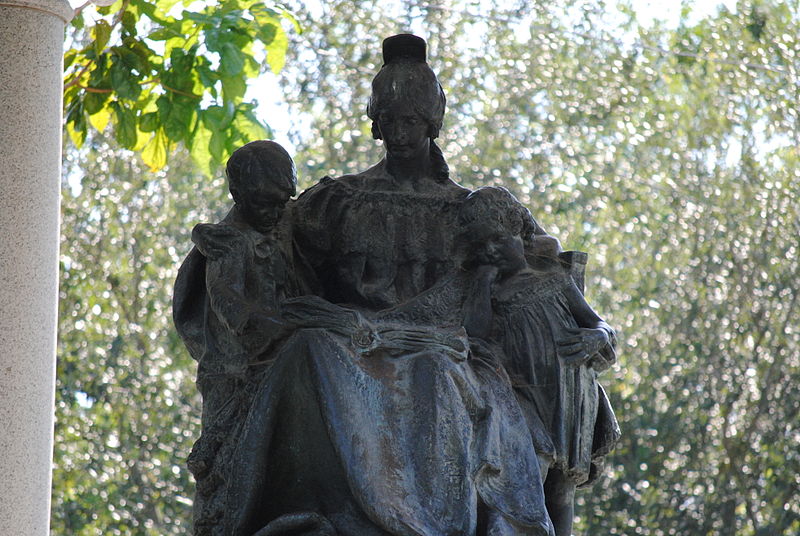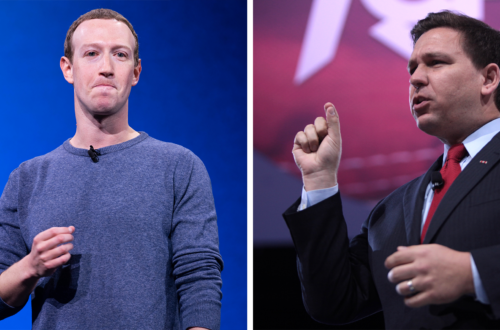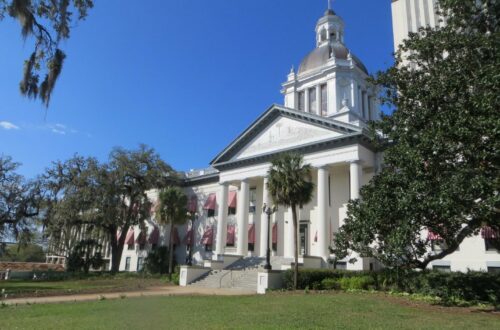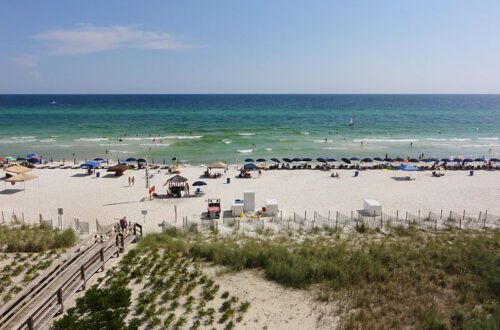Last summer, Jacksonville’s Mayor Lenny Curry vowed to remove Confederate statues from the city, yet some still remain standing today.
After promising to have Confederate statues taken down at a peaceful protest calling for their removal last June, Curry tweeted “We must find a way to peace and reconciliation… Differences will always exist but we must find common ground. I’m listening and seeking wisdom.”
Curry’s pledges to enact racial change in Jacksonville were made during the peak of the Black Lives Matter movement in June 2020. The removal of Confederate statues was a part of his commitment to see that change through.
Nearly a year later, the process to remove these statues is still in working progress, and local organizations are pushing to see it through.
City-based grassroots organizations — Take ‘Em Down Jacksonville and the Northside Coalition — rallied on May 4 in front of the Jacksonville City Hall to demand Curry to pursue action in overseeing the statues’ removals as he did last June when a bronze statue of a Confederate soldier was taken down by city workers on the mayor’s orders in Hemming Park in Downtown Jacksonville.
Take ‘Em Down Jacksonville and the Northside Coalition of Jacksonville are organizations that aim to reduce racial, social and economic injustice in the city and have been persistent in asking Curry to follow through in removing Confederate-celebrating monuments from city grounds.
Both organizations did not respond to a request for comment.
According to a 2017 University of Northern Florida poll, 39% of poll participants, which was made up of registered voters from Duval County, strongly opposed the removal of Confederate statues. 27% of participants identified themselves as being in strong support of their removal.
To many citizens who support the maintenance of Confederate statues in their city, the statues represent Southern United States history and pride as well as a way to honor the Confederate soldiers and leaders who died for their cause. Protests against the statues have expressed that Confederate memorials are damaging and unpatriotic to the nation.
Jacksonville residents like Kaleb Heth believe that the removal of statues may be a costly endeavour for the city.
“It is the foundation of our country, and even though terrible things happened during that time, we have made tremendous strides as a country since then… Our tax dollars would probably have to go toward removing the statues and changing names of parks when they need to be going toward something way more important,” said Heth.
Currently, there are 14 Civil War memorials and historical locations in Jacksonville, including some Confederate statues — such as the Woman of the Southland statute and the Yellow Bluff Fort Monument — that still stand. Neither Curry nor his administration have made any announcements of their plans to enact their withdrawal.
“People say that removing these statues will help us move forward in society with regard to racial inequality, but what does that do in the process? It tries to erase history when you cannot do that,” Heth said.
In late April, Gov. Ron DeSantis, R-Florida, signed Senate Bill 484 into law, otherwise known as the Combating Public Disorder Act. According to SB 484, “defacing, injuring, or damaging” a memorial without governmental permission is now viewed as a felony.
Many Floridian activists fear SB 484 will interfere with their rights to protest, but it certainly means that Jacksonville Confederate statues cannot lawfully be taken down without Curry’s authority.
As of last September, there are 54 Confederate statues in Florida. Following the murder of George Floyd and subsequent Black Lives Matter protests, 35% of Confederate statues in Florida were removed. These widespread removals were part of a larger nationwide movement to remove Confederate statues from city and government property.
Until Curry announces the plans for the removal of Confederate statues in Jacksonville, no action can be taken toward taking them down.
Curry declined a request for comment.
“Racism is still an issue in the country, although definitely not as bad as during the Civil War,” Heth said. “This is an issue about culture and not race.”
Check out other recent articles from Florida Political Review here.
Featured Image: Woman of the Southland statue in Confederate Park in 2014. Unmodified photo by Excel23 used under a Creative Commons License (https://bit.ly/3hrDWha)





